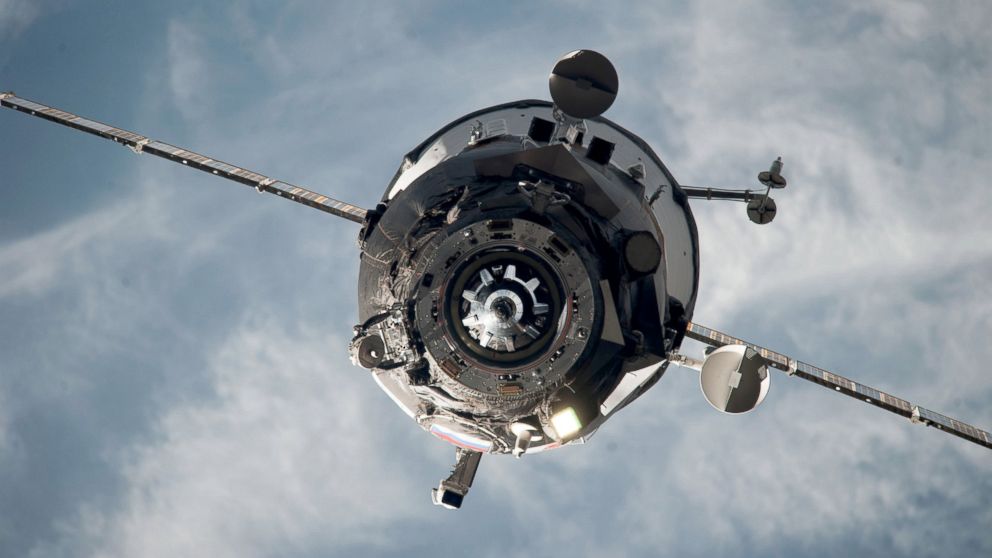Russia's Out-of-Control Progress Spacecraft Plunges Back to Earth
Russia's Progress cargo spacecraft re-enters Earth's atmosphere.

— -- Russia's Progress spacecraft burned up when entering Earth's atmosphere and plunged into the middle of the Pacific Ocean, ten days after a series of system failures sent it on an uncontrolled spin through space.
Progress reentered the Earth’s atmosphere at 10:04 p.m. EDT over the central Pacific Ocean on Thursday night, according to the Russian Federal Space Agency.
"The spacecraft was not carrying any supplies critical for the United States Operating Segment (USOS) of the station, and the break up and reentry of the Progress posed no threat to the ISS crew," NASA said in a statement. "Both the Russian and USOS segments of the station continue to operate normally and are adequately supplied well beyond the next planned resupply flight."
Progress was launched on April 28 on what was supposed to be a six-hour journey to the International Space Station to deliver supplies.
After liftoff, several navigational antennas on the spacecraft failed to deploy and problems were reported with the propulsion system, according to NASA.
Attempts to issue commands to the spacecraft as it passed over Russian ground control stations were unsuccessful, prompting Russia to consider the spacecraft and its cargo a total loss.
On board Progress were 6,000 pounds of food, fuel and supplies for the six astronauts at the International Space Station.
The next supply run to space will be in June when SpaceX's Dragon, which is currently berthed at the International Space Station, makes another trip.
This is the second issue with space cargo runs in the past seven months.
Last October, an Antares rocket exploded shortly after launch, destroying thousands of pounds of cargo on board Orbital Sciences' Cygnus spacecraft.



